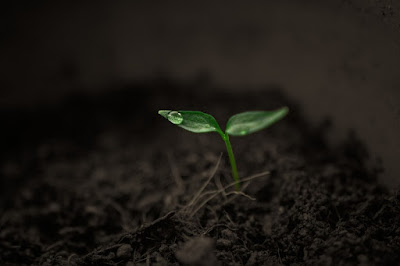What causes the earthy smell after rain?
It’s Petrichor!
The earthy scent produced when rain falls on dry soil is technically called petrichor. The term “petrichor” was coined by Australian scientists in 1964. They investigated the aroma coming from moist clay, sediment, and rock. Numerous other studies were conducted later to figure out what causes petrichor and if we can artificially mimic it.
The petrichor scent is generally caused due to the secretion of oils by some plants, the generation of geosmin by Actinomycetes bacteria, the presence of ozone, and our higher nasal sensitivity to the scent of petrichor. Let’s look into these reasons one by one in a more detailed manner.
There are three main reasons behind the earthy smell of the soil:
1}Smelling the ozone
•The fresh smell that comes after a thunderstorm is due to ozone.
•According to scientists, ozone has a pungent and very sharp smell similar to Chlorine gas. After the rain, some amount of ozone gas present in the atmosphere dissolves with the rainwater, due to which the smell or aroma arises.
•In fact, the word “ozone” is derived from the Greek word ozein, which means to smell!
•During rains that are preceded by thunderstorms, when electric lighting high up in the atmosphere splits the oxygen and nitrogen molecules, ozone is produced. More specifically, the split molecules often recombine into nitric oxide, which subsequently interacts with other gases in the atmosphere to form ozone (O3). This ozone is then carried downwards to our nose level by the windy storms. When the rain begins to fall, you detect this distinct sharp smell of petrichor.
2}Geosmin secretion by Actinomycetes bacteria
•The "rain smell" is caused by a chemical in the bacteria called geosin, which is released by the bacteria as they die.
•Geosin is a type of alcohol molecule and has a very strong scent.
•The bacteria are extremely common and can be found in areas worldwide, which accounts for the universality of this sweet "after-the-rain" smell.
3}Acidity of Rain
•Another sort of smell is caused by the acidity of rain.
• Because of chemicals in the atmosphere, rainwater tends to be somewhat acidic, especially in urban environments.
•When it comes in contact with organic debris or chemicals on the ground, it can cause particularly aromatic reactions.
Humans have high nasal sensitivity to geosmin!!
•Our noses can discern millions of different fragrances. Many of them are deeply associated with memories and emotions.
•Attachment to petrichor is embedded in our genes.
•Although many of us are not directly connected to farming, we feel deeply nostalgic, just like our ancestors did in the past when the scent of petrichor emanated from the grounds during the first rain showers.
Conclusion:
•To some people, reminiscent of chlorine, that's ozone during a storm lightning two-slit oxygen and nitrogen molecules can recombine into nitric oxide, and that oxide can react with other atmospheric chemicals to form ozone.
•The wind from an approaching storm can carry this ozone scent from the clouds straight to your nose, but that's not the only aroma in this mix.
•One of the more pleasant rain smells is caused by bacteria in the soil. This bacteria is extremely common, and people worldwide will recognize the aroma.
•I just want you to know that you are snorting bacteria when you smell that petrichor now; these are just some of the most common after-rain smells, but there are all sorts of other scents that could come into play.
References:
https://science.howstuffworks.com/nature/climate-weather/atmospheric/question479.htm
Blog Credits: Ashay Thakare (SY Mechanical, 112110134)
NOTE:-
This blog is meant for Educational purposes only. We do not own any Copyrights related to images and information; all the rights go to their respective owners. The sole purpose of this blog is to Educate, Inspire, Empower, and create awareness in the viewers. The usage is non-commercial(Not For Profit), and we do not make any money from it.
FOLLOW US ON:-
INSTAGRAM :
https://bit.ly/coep_blogs_insta
LINKEDIN:
https://bit.ly/coep_blogs_linkedIn
YOUTUBE:-



Comments
Post a Comment